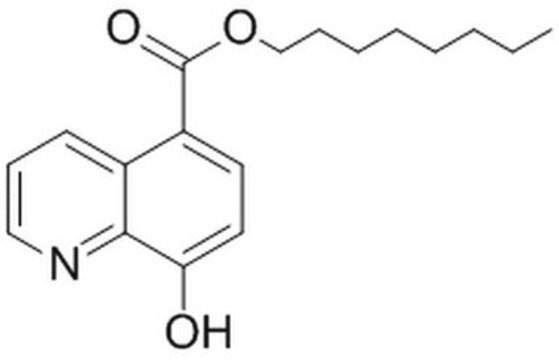5.31662
JHDM Inhibitor VIII, SD70
Synonyme(s) :
JHDM Inhibitor VIII, SD70, N-(Furan-2-yl(8-hydroxyquinolin-7-yl)methyl)isobutyramide, N-(2-Furyl(8-hydroxy-7-quinolinyl)methyl)-2-methylpropanamide, Histone Lysine Demethylase Inhibitor XV, SD-70
About This Item
Produits recommandés
Pureté
≥97% (HPLC)
Niveau de qualité
Forme
powder
Fabricant/nom de marque
Calbiochem®
Conditions de stockage
OK to freeze
protect from light
Couleur
off-white
Solubilité
DMSO: 50 mg/mL
Température de stockage
2-8°C
Description générale
Please note that the molecular weight for this compound is batch-specific due to variable water content.
Actions biochimiques/physiologiques
JMJD2C/KDM4C
Conditionnement
Avertissement
Reconstitution
Autres remarques
Informations légales
Code de la classe de stockage
11 - Combustible Solids
Classe de danger pour l'eau (WGK)
WGK 3
Point d'éclair (°F)
Not applicable
Point d'éclair (°C)
Not applicable
Certificats d'analyse (COA)
Recherchez un Certificats d'analyse (COA) en saisissant le numéro de lot du produit. Les numéros de lot figurent sur l'étiquette du produit après les mots "Lot" ou "Batch".
Déjà en possession de ce produit ?
Retrouvez la documentation relative aux produits que vous avez récemment achetés dans la Bibliothèque de documents.
Notre équipe de scientifiques dispose d'une expérience dans tous les secteurs de la recherche, notamment en sciences de la vie, science des matériaux, synthèse chimique, chromatographie, analyse et dans de nombreux autres domaines..
Contacter notre Service technique








